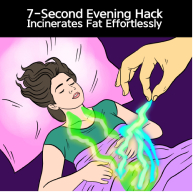Hormones are the silent regulators of a woman’s body. From metabolism and sleep to fertility and mood, these chemical messengers dictate how you feel, function, and thrive. But for many women over 35, something shifts. Suddenly, you’re dealing with unexplained fatigue, mood swings, or stubborn weight gain. The culprit? A possible hormonal imbalance.
Hormone imbalance symptoms can be subtle at first — and often dismissed as “just stress” or “getting older.” Yet, ignoring these early signs may put your long-term health, fertility, and mental well-being at risk. Whether you’re in your late 30s, navigating perimenopause, or simply not feeling like yourself, understanding the root of your hormonal health is essential.
In this comprehensive guide, we’ll explore:
- The most common hormone imbalance symptoms in women
- How hormonal shifts affect fertility and thyroid health
- When to seek medical attention
- Evidence-based solutions to restore balance
Let’s decode what your body might be trying to tell you.
What Is Hormonal Imbalance?
Hormonal imbalance occurs when there is too much or too little of a hormone in the bloodstream. Because hormones are powerful messengers, even minor imbalances can trigger widespread health issues.
Key Hormones Affected in Women
- Estrogen & Progesterone – Crucial for menstrual cycles, fertility, bone health, and mood
- Testosterone – Often overlooked, it affects libido, muscle tone, and motivation
- Thyroid Hormones (T3, T4) – Regulate metabolism, energy, and temperature
- Cortisol – The body’s stress hormone, tied to sleep, weight, and immunity
- Insulin – Manages blood sugar; imbalance can lead to insulin resistance
- DHEA & Melatonin – Influence aging, mood, and sleep cycles
As women age, particularly after 35, these hormone levels begin to fluctuate more noticeably. These shifts may signal the beginning of perimenopause, thyroid dysfunction, or adrenal fatigue — all of which deserve attention.
Common Hormone Imbalance Symptoms in Women
Hormonal imbalance symptoms vary by the individual, but patterns often emerge — especially for women in midlife.
1. Unexplained Fatigue and Low Energy
Feeling chronically tired, despite sleeping well? Low thyroid function, adrenal fatigue, or low progesterone may be responsible. These imbalances slow metabolism and reduce cellular energy production.
🔍 Related keyword: thyroid disorder symptoms
2. Mood Swings, Anxiety, and Depression
Estrogen and progesterone strongly influence neurotransmitters like serotonin and dopamine. When these hormones fluctuate:
- Anxiety increases
- Depression deepens
- Mood becomes unpredictable
Especially during perimenopause, estrogen levels may spike and drop erratically, intensifying emotional symptoms.
3. Weight Gain and Metabolic Changes
Midsection weight gain is a hallmark sign. A drop in estrogen often leads to insulin resistance, increasing belly fat. Simultaneously, low thyroid hormones slow down your metabolism, making weight loss more difficult than ever.
4. Sleep Disruptions
Do you wake up at 3 AM every night? Hormonal imbalances can:
- Lower melatonin, disrupting sleep cycles
- Raise cortisol, keeping your body in fight-or-flight mode
- Cause hot flashes and night sweats
This poor-quality sleep perpetuates fatigue and mental fog.
5. Menstrual Irregularities
Changes in your cycle are often the first visible signs:
- Heavier or lighter periods
- Missed cycles
- Shorter or longer cycles
These can point to low progesterone, estrogen dominance, or approaching menopause.
6. Decreased Libido and Vaginal Dryness
Testosterone plays a crucial role in sex drive for women — and its decline often goes untested. In addition, estrogen deficiency causes thinning vaginal tissue, leading to dryness and discomfort during intimacy.
7. Brain Fog and Memory Issues
Feeling forgetful or struggling to concentrate? Low estrogen and cortisol dysregulation are common contributors to cognitive decline in women over 35.
Hormonal Imbalance and Fertility: What You Need to Know
Fertility is often the first area affected by hormone shifts. Even if you’re not actively trying to conceive, it’s important to understand how hormonal health impacts reproductive function.
Hormones Critical for Fertility
- FSH & LH – Signal the ovaries to produce eggs
- Estrogen – Builds the uterine lining for implantation
- Progesterone – Maintains early pregnancy
- Thyroid Hormones – Support ovulation and embryo development
Hormonal Imbalance and Conception
Common hormonal patterns that interfere with fertility include:
- Estrogen dominance (too much estrogen relative to progesterone)
- Low progesterone, making it hard to maintain a pregnancy
- Hypothyroidism, which can cause anovulation
- Elevated prolactin, which may suppress ovulation
🔍 Related keyword: hormonal imbalance and fertility
If you’ve been trying to conceive for over 6 months without success — especially over age 35 — testing hormone levels is essential.
Thyroid Disorder Symptoms in Women
Women are up to eight times more likely than men to experience thyroid disorders — often undiagnosed. Hypothyroidism (underactive thyroid) is the most common, especially after age 40.
Watch for These Signs:
- Fatigue
- Sensitivity to cold
- Weight gain
- Thinning hair or dry skin
- Brain fog
- Irregular periods
Hypothyroidism can mimic symptoms of perimenopause or depression. If these signs resonate, a thyroid panel (TSH, T3, T4, antibodies) can provide clarity.
🔍 Related keyword: thyroid disorder symptoms
Emotional and Psychological Effects
Hormonal imbalance doesn’t just impact your body — it affects how you feel about yourself and the world.
Common Emotional Signs:
- Increased anxiety
- Irritability and rage
- Hopelessness or depression
- Feeling overwhelmed
- Low self-esteem or loss of confidence
Because women often juggle careers, caregiving, and societal expectations, it’s easy to normalize these feelings. But they may be your body’s cry for hormonal attention.
What Causes Hormonal Imbalance in Women Over 35?
Many factors contribute to hormonal shifts, especially after mid-30s.
Common Causes Include:
- Perimenopause and menopause
- Chronic stress → elevated cortisol → adrenal dysfunction
- Poor sleep → impacts melatonin, cortisol, estrogen
- Poor diet (high sugar, alcohol, processed foods)
- Environmental toxins (xenoestrogens from plastics, pesticides)
- Thyroid dysfunction
- Blood sugar imbalances or insulin resistance
- PCOS or other endocrine disorders
Aging is natural — but suffering through symptoms is not. The good news? Most hormonal imbalances are identifiable and treatable.
When to See a Doctor
Many women wait until symptoms become unbearable before seeking help. But early testing and intervention can prevent complications.
Seek Medical Guidance If You Experience:
- Persistent fatigue or insomnia
- Missed or irregular periods
- Sudden weight gain or loss
- Infertility or miscarriage
- Emotional distress or brain fog
- Loss of libido or vaginal discomfort
Ask your provider about testing for:
- Estrogen, progesterone, testosterone
- TSH, Free T3/T4, thyroid antibodies
- Cortisol (saliva or blood)
- Insulin and fasting glucose
- DHEA and prolactin
Solutions: How to Restore Hormonal Balance Naturally
Treating hormonal imbalance is not one-size-fits-all. Your doctor may recommend hormone replacement therapy (HRT), but there are many natural approaches to support hormonal harmony.
1. Nutrition for Hormone Health
- Prioritize whole foods: veggies, lean proteins, healthy fats
- Support liver detox with cruciferous vegetables (broccoli, kale)
- Reduce sugar, caffeine, alcohol
- Consider seed cycling for menstrual support
- Eat enough — chronic dieting can suppress hormones
2. Lifestyle Strategies
- Prioritize 7–9 hours of quality sleep
- Engage in strength training and walking (not excessive cardio)
- Manage stress with meditation, journaling, nature time
- Reduce exposure to xenoestrogens (plastics, synthetic fragrances)
3. Herbal and Supplement Support
Always consult your doctor before starting supplements. Common options include:
- Vitex (chasteberry) – Balances progesterone
- Maca root – Supports libido and mood
- Ashwagandha – Lowers cortisol and supports thyroid
- Magnesium – Helps sleep and reduces PMS symptoms
- Omega-3s – Anti-inflammatory and hormone-friendly fats
Your Next Steps: Becoming an Advocate for Your Hormone Health
If you’ve recognized yourself in these symptoms, know that you’re not alone — and it’s not “just in your head.” Hormone health is the foundation of your physical, mental, and emotional well-being.
Getting the right labs, support, and care can dramatically improve your life. Don’t settle for feeling less than your best.
Exclusive consulting
Many women over 35 begin to notice shifts in energy, mood, or metabolism without realizing that fluctuating hormone levels may be the root cause. That’s why getting tested isn’t just a “nice-to-have”—it’s an essential step in truly understanding your body. With HealthLabs, you can access physician-reviewed female hormone panels designed specifically to uncover these imbalances. Testing is quick, private, and available at CLIA-certified labs nationwide, making it easy to fit into your schedule. By checking in on your hormones today, you’ll be better equipped to take proactive steps toward balance, vitality, and long-term well-being.
Blood tests for measuring hormone and other blood levelsFrequently Asked Questions (FAQ)
The most common is estrogen dominance, often paired with low progesterone. It leads to PMS, mood swings, weight gain, and heavy periods.
Ask your provider for a full hormone panel, including estrogen, progesterone, testosterone, cortisol, thyroid hormones, insulin, and DHEA.
Absolutely. Hormonal imbalances can prevent ovulation, impair implantation, or disrupt early pregnancy — especially over age 35.
For some women, bioidentical hormone therapy (BHRT) may help, especially during menopause. Always weigh risks and benefits with a qualified provider.
Conclusion
Your hormones are powerful — and when they’re out of balance, your entire life feels off. But there is hope. By recognizing the signs early, seeking the right support, and embracing natural strategies, you can regain your vitality, confidence, and joy.
This is your invitation to start listening to your body — and honoring what it needs.







